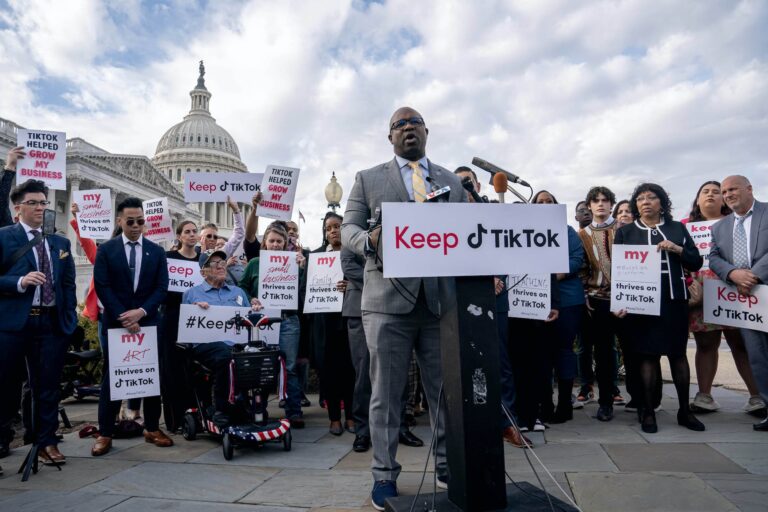The House of Representatives voted on March 13 to approve a measure that would effectively ban TikTok from operating in the United States or force a sale.
The bill passed the House 352-65, showing wide bipartisan support with backing from House Speaker Mike Johnson and former House Speaker Nancy Pelosi.
U.S. officials claim TikTok’s parent company, ByteDance, poses a threat to national security because it is based in Beijing. If ordered by Chinese authorities, ByteDance would be obligated to hand over the personal information of the 170 million Americans who use the app.
Members of the House’s Select Committee on the Chinese Communist Party argue that this creates “an unacceptable risk to U.S. national security” by allowing the Chinese government to “surveil and influence the American public.”
These concerns are not unfounded as ByteDance admitted in 2022 that former employees surveilled Americans on TikTok, including several journalists who were writing critical stories about the company.
Last year, a former ByteDance executive said in a legal filing that in the past, the Chinese government had been granted a “superuser” credential on TikTok. In 2018, this credential was used by the government to spy on Hong Kong protestors. ByteDance denies these allegations.
The legislation calls for ByteDance to divest or sell TikTok, otherwise the app will be banned from app stores and web-hosting services in the United States. The sale must further guarantee that ByteDance no longer has any control over TikTok or its algorithms.
The White House endorsed the legislation, with White House press secretary Karine Jean-Pierre calling it an “important” next step.
“We don’t see this as banning [TikTok], but ensuring that their ownership isn’t in the hands of those who may do us harm,” said Jean-Pierre.
TikTok opposes the bill, claiming it gives ByteDance too narrow of a window to find a buyer with the resources to buy TikTok. Companies large enough to purchase the app like Meta, Google and Microsoft, aren’t likely to make an attempt as the Biden administration has used antitrust laws to prevent these businesses from growing in the past.
“The bill is an outright ban of TikTok, no matter how much the authors try to disguise it,” said TikTok in an emailed statement. “This legislation will trample the First Amendment rights of 170 million Americans and deprive 5 million small businesses of a platform they rely on to grow and create jobs.”
The bill is now on its way to the Senate where it is already facing obstacles. Because the issues at play don’t lie on clear partisan lines, it has been difficult for lawmakers to agree on how the legislation should be addressed.
Senate Commerce Committee Chairwoman Maria Cantwell (D-Wash.) has been reluctant to support the bill, calling for hearings and suggesting the Senate rewrite it.
“We’re going through a process,” said Cantwell. “It’s important to get it right.”
Meanwhile, Senator Rand Paul (R-KY) took a strong stance against the bill on X.
“The passage of the House TikTok ban is not just a misguided overreach; it’s a draconian measure that stifles free expression, tramples constitutional rights and disrupts the economic pursuits of millions of Americans.”
In an effort to clear up miscommunication about the bill, Senator Richard Blumenthal (D-CT) and Senator Marsha Blackburn (R-TN) have called for intelligence agencies to declassify information about TikTok and China’s ownership that senators have had access to during classified briefings.
“It is critically important that the American people, especially TikTok users, understand the national security issues at stake,” wrote the senators in a joint statement.
Senator Mike Rounds (R-SD) believes that the Senate will eventually pass a bill addressing TikTok, even if it’s different from the current version. He further explained that the classified briefing “convinced the vast majority of members” that the issue of data collection by TikTok needs to be addressed.
“I think it’s a clear danger to our country if we don’t act,” said Rounds. “It does not have to be done in two weeks, but it does have to be done.”



